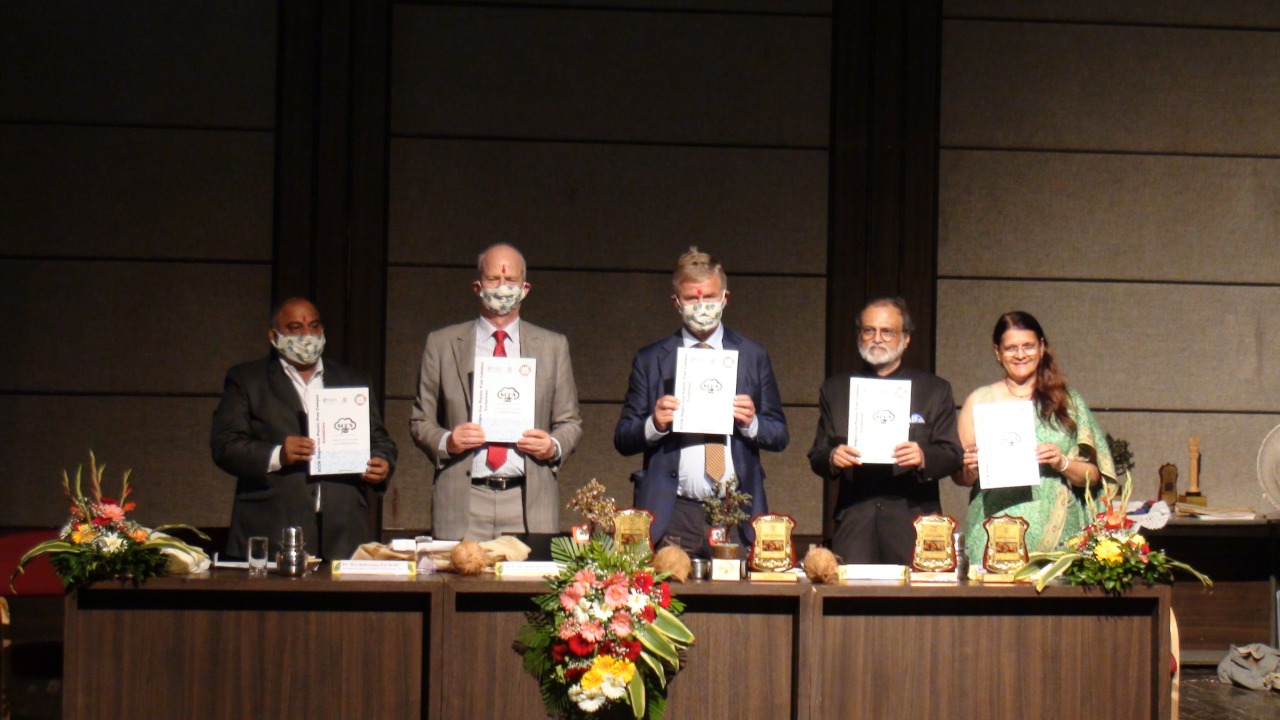SCCN Blogs
Single-Use Plastic Free Campus
World Health Organisation on 11 March 2020 declared COVID 19 as a pandemic. I would venture to emphasise that there are four pandemics running parallel
- Covd19 Pandemic
- Plastic Pandemic
- Climate Change Pandemic,
- Bio-diversity Pandemic.
The first one is declared by WHO. Others are not declared by WHO but by UNEP as an unprecedented global crisis.
I am today talking about Plastic Pandemic mainly in the context of determined and inspiring efforts being made by the Fergusson college of Deccan Education Society of Pune under TERRE Policy Centre's project called Smart Campus Cloud Network.
Let me take you to the world of omnipresent plastics. One million plastic drinking water bottles are purchased every minute, Five trillion single-use plastic bags are used worldwide every year, Half of all plastic produced is designed to be used only once and then thrown away, So how much is produced? The world has produced to date about 8.3 billion tonnes of plastics, that is more than one tonne per person on our planet.
Out of the global plastic production of 400 million tonnes a couple of years back, only about 10% is recycled and another 12% incinerated. Nearer home, in India, more than five to seven million tonnes of plastic waste is generated every year of which 40% remains uncollected and lies scattered. Eventually, it enters rivers and oceans and the food chain and hence in our veins, muscles and bones. The balance is mostly sent to landfills or burned. A UN report makes the shocking prediction that, by 2050, there will be more plastic in the oceans than fish.
Let us not be presumptuous. Plastic is cheap and incredibly versatile with properties that make it ideal for many applications. It is light in weight and can be conveniently converted into different shapes and sizes. Due to these properties, it has a wide range of applications like food packaging & storage, automobiles, aerospace, health care, and household items to name a few. But one of the major concerns is the non-biodegradability of plastics especially, single-use plastic that ends up in dump yards, landfills, and oceans. It remains in the biosphere for endless years. Today, it has become one of the most alarming environmental hazards. The world is getting submerged in plastics. Indeed plastics have given humanity the products that made our life easy and convenient, but not necessarily healthy.
At the 14th Conference of Parties (COP14) of the United Nations Convention to Combat Desertification (UNCCD), Prime Minister Narendra Modi reiterated his commitment to ban single-use plastic from India in the coming years. Prime Minister Narendra Modi highlighted the country's eagerness to fight single-use plastic and urged other countries to do the same. "Single-use plastic is not only harmful to the health of the people, but it is also a major reason for the deterioration of the health of the land. My country is going to ban single-use plastic in the coming years." Youth represent the generation that not only formulates the principles but also transforms them into actions. And the Campus represents the laboratory for the youth to explore, pilot, and try the ideas for healthy and sustainable solutions to our developmental imperatives.
Smart Campus Cloud Network (SCCN) a flagship project of TERRE Policy Centre utilizes the potential of youth and the campus. SCCN has launched the guidelines for a Single-Use Plastic Free campus. These guidelines are part of efforts to encourage the universities and colleges to adopt policies and practices towards a cleaner and plastic-free campus. The guidelines are also meant for research by students on alternatives to plastic and related subjects. The guideline will catalyze the actions in the campus to become plastic-free. The time to take a stance against plastic pollution has come. People are rallying in ever-greater numbers around the world, protesting the obscene amounts of plastic waste that are strewn on beaches, tossed in landfills, clogging the oceans. Responsible actions have also started taking place by people from various parts of society.
Fergusson college in 2016 reiterated has pledged to become Single-Use Plastic Free Campus. Today Fergusson College has moved towards becoming a Campus that have completely banned Single-Use Plastic usage. This ban of the Single Use, By the Campus, for the Environment. This ban is not authoritative but responsive.
The single-use plastic will not disappear overnight, instead, behavioural changes and choices that are made by each individual can help to bring about change. Reducing single-use plastic is crucial for fighting against climate change. Banning single-use plastic will reduce pollution, plastic waste materials and demand for plastic production contributing to global climate change. Making our life plastic-free, therefore, is a much-needed but certainly not an easy task, as plastic has become part of our daily life. However, there is an urgency to undertake such activities, and is indeed doable, if implemented in stages with suitable alternatives and its responsible use.
Rajendra Shende
Chairman, TERRE Policy Centre
Former Director, UNEP
IIT Alumnus
When you subscribe to the blog, we will send you an e-mail when there are new updates on the site so you wouldn't miss them.







Comments